 | George Albert Wentworth - Arithmetic - 1888 - 392 pages
...3 That is, 72 = 2x2x2x3x3, = 2'x32. 1 Hence, to separate a composite number into its prime factors, Divide the given number by any prime number that is...divisors and the last quotient are the prime factors required. 222. The following tests are very useful for determining without actual division whether... | |
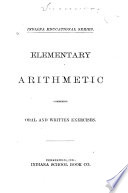 | Edward Sylvester Ellis - Arithmetic - 1889 - 196 pages
...obtained by the least prime number that will divide it, and continue the process until the quotient is a prime number ; the several divisors and the last quotient are the prime factors required. 2. What are the prime factors of 50 ? 60 ? 98 ? 99 ? 3. What are the prime factors of 33... | |
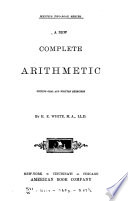 | Emerson Elbridge White - Arithmetic - 1883 - 370 pages
...factor, and the quotient by any prime factor, and so continue untü a quotient is obtained which is a prime number. The several divisors and the last quotient are the primé factors. 2. To find the greatest common factor of two or more numbers : Bule. — Resolve the... | |
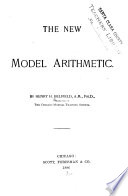 | Henry Holmes Belfield - Arithmetic - 1891 - 362 pages
...divide each succeeding quotient by any of its prime factors, until a quotient is obtained which is a prime number. The several divisors and the last quotient are the prime factors of the number. Test the truth of this rule and the correctness of your work by finding the product... | |
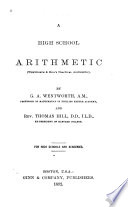 | George Albert Wentworth, Thomas Hill - Arithmetic - 1892 - 392 pages
...prime nu,nber that is contained in it without remainder, then the quotient by any prime number thai is contained in it without remainder, and so on until...divisors and the last quotient are the prime factors required. 222. The following tests are very useful for determining without actual division whether... | |
 | Webster Wells - Arithmetic - 1893 - 390 pages
...divide the quotient by any one of its factors; and so on, continuing the process until the quotient is a prime number. The several divisors and the last quotient are the factors required. Note 1. In determining the prime factors of a number, divisors should be tried in... | |
 | George Albert Wentworth - Arithmetic - 1894 - 414 pages
...separate a composite number into its prime factors, Divide the given number by any prime number thai is contained in it without remainder, then the quotient...divisors and the last quotient are the prime factors required. 222. The following tests are very useful for determining without actual division whether... | |
 | George Edward Atwood - Arithmetic - 1894 - 214 pages
...any prime factor ; then divide the quotient by another prime factor, and so on until the quotient is a prime number. The several divisors and the last quotient are the prime factors. 57. To find the common prime factors of two or more numbers. RULE. — Divide the numbers by any common... | |
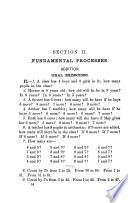 | George Washington Hull - Arithmetic - 1895 - 404 pages
...Divide the number by any of its prime factors; do the same with each quotient until the quotient is a prime number. The several divisors and the last quotient are the prime factors required. 2. Find the prime factors of 114. Of 426. PROCESS. PROCESS. 2)114 2)426 3)57 3)213 19 71... | |
 | George Albert Wentworth - Arithmetic - 1896 - 490 pages
...prime number that exactly divides it; then the quotient by any prime number that exactly divides it ; and so on until the quotient is itself a prime number....becomes equal to or less than the divisor, the number is a prime number. 112. Exponents. To avoid the necessity of writing long rows of equal factors, a small... | |
| |